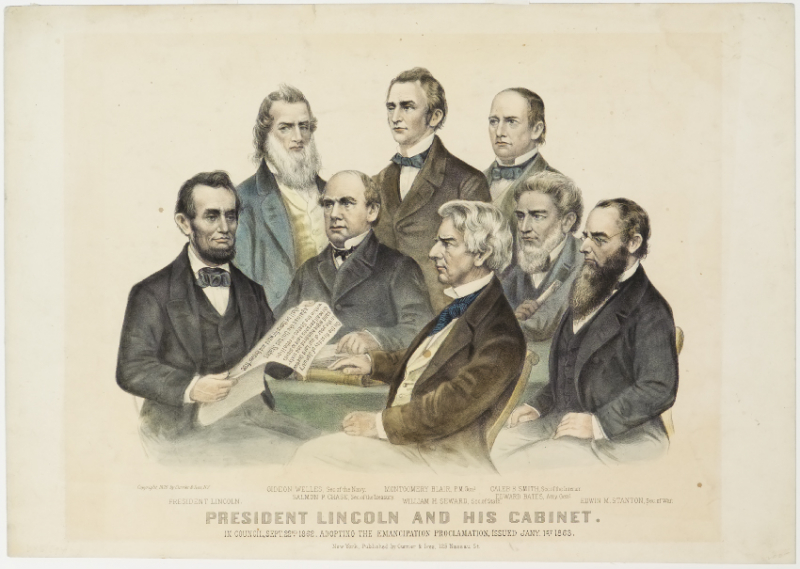Lincoln’s advisors did not initially support the Emancipation Proclamation.
President Abraham Lincoln first proposed the Emancipation Proclamation to his cabinet in the summer of 1862. This cabinet is Abraham Lincoln's first cabinet, which is a group of seven men including Gideon Welles, Sec. of the Navy Montgomery Blair, PM General Caleb B. Smith, Sec of the Interior Salmon P. Chase, Sec of the Treasury William H. Seward, Sec of State Edward Bates, Atty Genl Edwin M. Stanton, Sec of War.
After reading the draft of President Abraham Lincoln's Proclamation, Lincoln's cabinet members had mixed reactions. Most of the cabinet members were unconcerned with the document. They worried that the Emancipation Proclamation might be too radical for the situation at the moment. This is due to the fact that such a document is so ahead of its time, stating problems that were seen as impossible to be solved. Only after Secretary of State William Seward's suggestion that the document stands a chance to be published. William Seward suggested that the President should wait to issue the Proclamation until a Union victory could prove that the federal government could enforce it. President Abraham Lincoln agreed, and the preliminary Emancipation Proclamation is officially issued on September 22nd, 1862.
William Seward had always been a close friend and loyal subordinate to President Abraham Lincoln. According to newspaper accounts, he said that everyone would soon see Lincoln as “a true patriot, benevolent and loyal, honest and faithful. Hereafter, all motive of detraction of him would cease to exist, and Abraham Lincoln would take his place with Washington, Jefferson, and Adams, among the benefactors of his country and the human race.”











